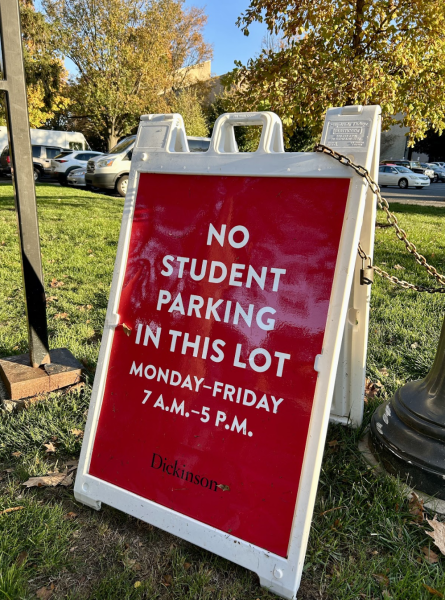A Response to Peter Soeller
As a member of the editorial board of the Dickinsonian, I’ve been part of countless conversations debating the worthiness of printing a certain article or op-ed piece. More often than not, we print articles that may be controversial, in the hopes that it will help the newspaper serve its purpose by spurring some form of civil discourse on campus.
Let’s engage in some civil discourse, shall we?
This week’s issue features an op-ed contribution from Peter Soeller ‘14. Soeller’s article ostensibly begins as a critique of American fascination with the wealthy, but quickly veers into an attack of the campus culture and administration at Dickinson. He writes, “most elite liberal arts schools are run by the same authoritarian culture that demands some type of social hierarchy to maintain dominance and complacency amongst the student body.”
If we accept Soeller’s argument that the aim of Dickinson’s administration is to maintain complacency amongst the student body, then perhaps we can claim at least a small victory by saying that they’ve failed pretty terribly. A campus with number of organizations that advocate for social, political, and environmental justice can hardly be labeled as ‘complacent.’ Organizations such as reinvest Dickinson, Students for Social action, CommServ, the Feminist Collective, and others are all visible proof of the shortcomings in Soeller’s argument about the administration. Either Soeller has remained completely ignorant of the existence of student organizations and interest groups over his four years at Dickinson or has chosen to selectively disregard their existence because they do not align with his personal opinions and ideologies. Whatever the reason, both possibilities are equally problematic.
Alternatively, if we challenge Soeller’s claim, as I think we should, we can take a closer look at the functioning and purpose of Dickinson’s administration. Soeller accuses the administration of being moderate on political issues, using a quote from a dean to support his argument. In this particular argument, he equates political moderation with indifference, failing to accept moderation as a sign that one can have nuanced views of a political issue rather than adhering to the bipartisan political ideologies that pervade our political system. While Soeller may find the proclamation of political moderation unfertile ground for intellectual debate, perhaps the statement was issued as means of creating the very “cultural rift between students and their representatives in the administration.” Political leanings aside, Soeller’s attacks of the administration and the “culture” of domination that they are supposedly trying to foster creates a more divisive rift than any of the supposed phenomenon he talks about.
Overall, Soeller’s dissatisfaction with the administration seems to stem form a larger resentment of power and authority. He writes, “those who wield influence, who control the levels of power, are looked up to as role models… those at the top are inherently oppressive.” In her essay On Power, political theorist Hannah Arendt defines power as the capacity to act in concert for a political purpose. Power comes not from within an individual, and it does not belong to an individual. Power manifests from the cooperation and common interests of multiple actors, based on consent and rational persuasion.
By this understanding, one can argue that power can, be abused or corrupt, but one must also accept that power can bring about positive outcomes. A categorical rejection of power as inherently dangerous leads only to inertia and the unrealized collective potential of social movements. If we are to have any hope in affecting change on any level – within our campus or beyond it – we must accept the dual nature of power, that is, the ability to use it for good or evil. Such an understanding shows us that the outlook for our campus and society isn’t nearly as bleak as Soeller paints it.



